Berita
Barclays menghasilkan $1,7 miliar dari perusahaan yang terkait dengan invasi tanah adat.
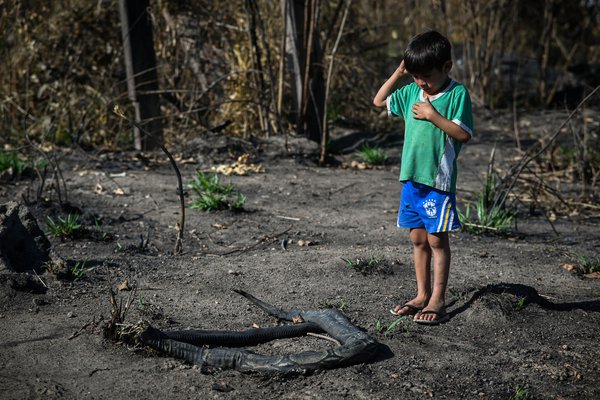
Financial powerhouses including Barclays, Vanguard and BlackRock made millions from financing Brazilian meatpacker JBS, whose operations are driving destruction of Apyterewa Indigenous land
British bank Barclays earned $1.7 billion from financing Brazilian meat giant JBS over the last five years as the company’s operations contributed to the invasion and destruction of an Indigenous territory in Brazil, an investigation led by climate organisation Global Witness can reveal.
Barclays emerged as the largest creditor to JBS’s global operations, with the highest income generated from loans and underwriting fees among over 30 other financiers identified by independent research group Profundo. JBS’s role in illegal deforestation Commercial cattle ranching by non-Indigenous people is illegal in Indigenous territories designated under Brazil’s federal law. However, between 2018 and 2023 nearly 8,000 cows raised within the Apyterewa Indigenous territory entered JBS’s supply chain, according to an analysis from the Center for Climate Crime Analysis (CCCA). JBS did not reply to our request to comment. The Apyterewa territory, home of the Parakanã people, in northern Brazil’s Pará state has seen more deforestation than any other Indigenous territory in recent years in the Brazilian Amazon. Despite legal protections, cattle ranchers persistently invade these lands, exploiting the global appetite for beef and disregarding the rights of Indigenous communities. In October 2023, the Brazilian government evicted these land invaders, but a recent flyover by Global Witness revealed active fires, indicating that both deforestation and invasions are still ongoing. As the Amazon rainforest faces the worst fire season in two decades amid a severe drought, the destruction of Apyterewa is intensifying. This is because fires in the Amazon are largely triggered by human activity, especially by those clearing forests for land grabs. Data from Brazil’s National Institute for Space Research (INPE) has confirmed more than 300 fire alerts since the start of this year, underscoring the persistent threat. The environmental and human cost
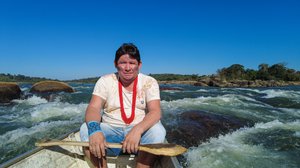
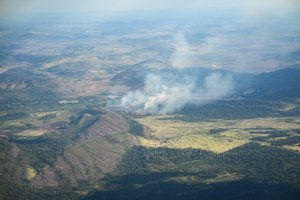
According to Brazilian government estimates, around 2,500 Indigenous people are distributed across 51 villages in the territory – primarily from the Parakanã, Mebengôkre Kayapó and Xikrim communities.Meanwhile, Indigenous groups assert that when the invasion peaked, there were approximately 10,000 non-Indigenous people occupying the land.The Parakanã people say the outsiders are polluting their water sources, depleting forest resources and threatening their traditional way of life.
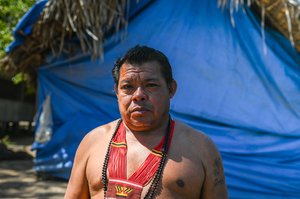
While the presence of cattle-ranching invaders has long been apparent, the ultimate – and sometimes indirect – buyers of their cows remained hidden in this complex supply chain, until now.The indirect supply chain blind spotThis new CCCA analysis reveals that between 2018 and 2023, 7,795 cows slaughtered by Brazilian meatpacker JBS came from supply chains that include farms located in Apyterewa. Of these, the CCCA calculates that 561 were sourced by JBS directly from illegal farms within the Apyterewa territory – while the majority, 7,234 cows, were part of JBS’s indirect supply chain. CCCA identified these supply chain transactions using an algorithm that incorporates a multi-level analysis of information extracted from cattle transfer records documenting trade between relevant businesses owned by or transacting with JBS.These cattle were likely “laundered” into the meatpacker’s supply chain, with ranchers transferring cattle from farms within the Indigenous territory to seemingly “clean” ranches with no recent forest loss or connection to the original land grab.
Indirect supply chains represent a significant blind spot in tackling deforestation. A recent study by non-profit Mighty Earth showed that, between 2017 and 2022, indirect suppliers reportedly accounted for most deforestation linked to major meatpackers. The new CCCA analysis revealed that two other meat industry heavyweights – Marfrig and Minerva – also sourced cattle from Apyterewa land.According to this investigation, Marfrig received 94 cows directly from illegal farms and was linked to a further 2,691 cows through its indirect supply chain, while Minerva was associated with 277 Apyterewa-raised cows.Both denied they purchased cows from properties located inside Indigenous lands.
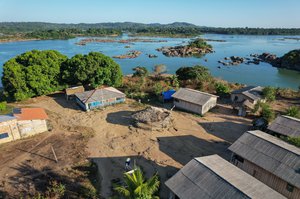
Although its direct financing of JBS’s Brazilian operations specifically appears to have been more limited in the analysed period, Barclays has long been the company’s biggest international financier across all JBS’s operations, continuing its support even when other banks distanced themselves from the controversial meatpacker. Our findings add to more than a decade of allegations against JBS, whose links to environmental destruction and human rights abuses via its supply chains have been well-documented. The company recently removed its reference to a “zero tolerance to … invasion of protected areas such as indigenous lands or environmental conservation areas” in its latest application to list its shares on the New York Stock Exchange.
The Profundo analysis also examined direct investment and shareholdings, indicating that US-based financial institutions pocketed a combined $660 million from JBS investments globally. Asset management giants Vanguard, BlackRock, Fidelity Investments and Capital Group held the bulk of it, with Vanguard and BlackRock earning $46 million each from JBS’s Brazilian operations.None of these US-based financial institutions commented on the allegations.
Separately, Global Witness has reported that BlackRock and Vanguard are among six firms holding over $11 million in active bonds issued by JBS and its subsidiaries through funds labelled as “environmental, social and governance” (ESG).While these funds explicitly exclude fossil fuel companies from their portfolio, they do not outright exclude companies linked to deforestation in their screening process.Global Witness contacted all the financial institutions mentioned in this report. Relevant extracts of the responses received are available in the investigation’s PDF.Mama Parakanã told Global Witness: “I want to send a message to the banks because we suffered great losses. It was a lot of investment. Sometimes, they didn’t even know it was indigenous land. So, I’m telling them how they are to be blamed. The meat that came out of here, all our land here, and meat, all illegal.”Invaders still present
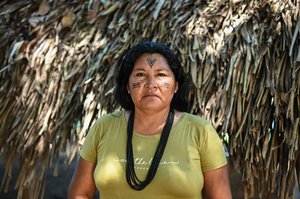
Continued risks in the supply chain
The ongoing presence of invaders raises questions about how beef from Apyterewa may still enter major meatpackers’ supply chains today, despite their claims of sustainable practices. This risk highlights the need for financiers, such as Barclays, Blackrock and others, to ensure their investments do not contribute to deforestation or land invasions, points out Global Witness’ Reid. In that context, she added, governments also need to step up and ensure that banks are required to carry out checks before they finance companies operating in sectors we know are regularly connected to human rights abuses, land grabs and deforestation.“The financial sector has no excuse to turn a blind eye to their role in funding companies driving deforestation.”
Tautan asli: https://www.globalwitness.org/en/campaigns/forests/barclays-earned-17bn-company-tied-indigenous-land-invasion/